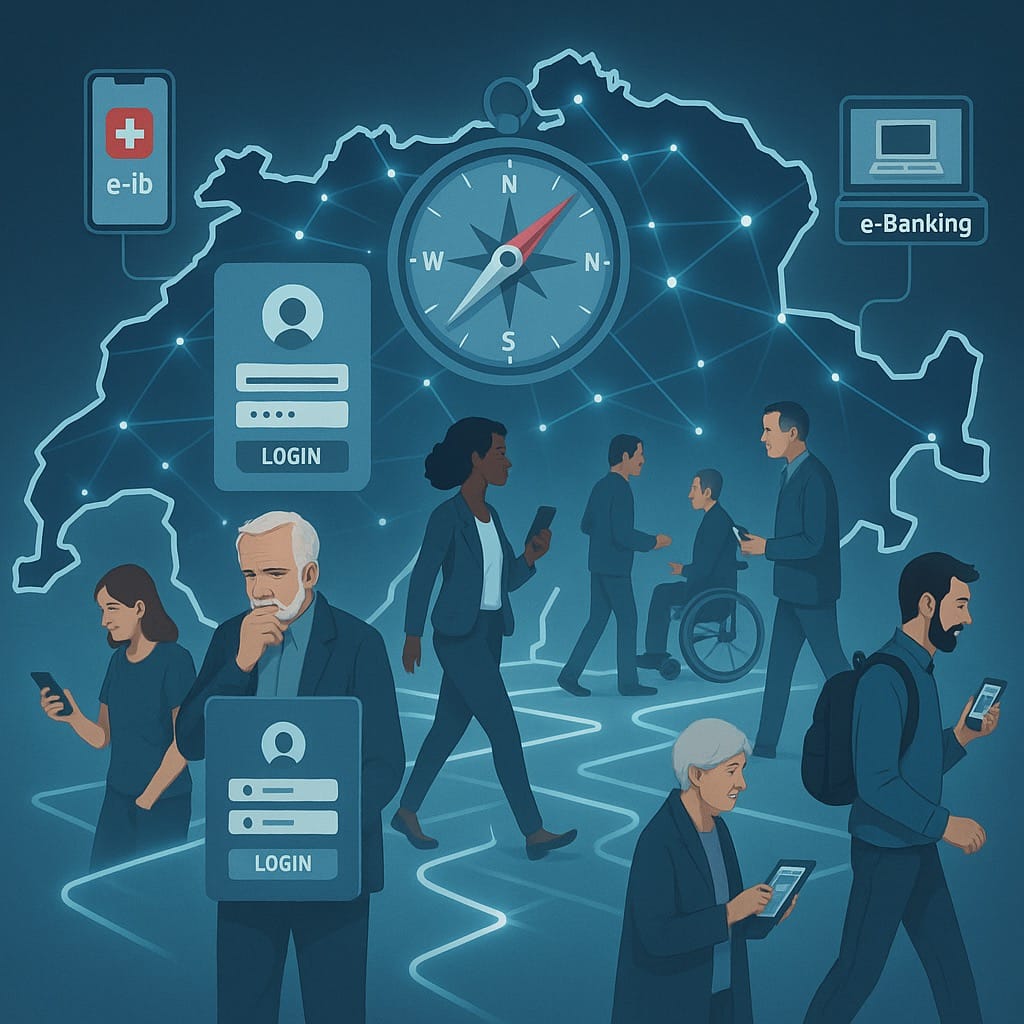A Digital Compass for Swiss Everyday Life

Topic
This master thesis investigates which digital competences are essential for meaningful participation in Swiss everyday life. Drawing on the DigComp 2.2 framework and qualitative expert interviews, it explores how individuals navigate digital touchpoints such as mobility apps, e-banking, and public services. The study develops a "Digital Compass" that highlights both foundational digital skills and transversal competencies like system competence, adaptability, and critical curiosity.
Relevance
The findings are highly relevant for practitioners, as they show that digital participation in Switzerland is often hindered not by technical access but by systemic complexity and inadequate support. Both public and private sectors risk excluding users if digital services do not accommodate diverse needs and competencies. The study offers actionable insights for creating more inclusive, navigable digital environments that reflect real-world challenges.
Results
The thesis identifies that meaningful digital participation requires more than isolated technical skills. Key competences include digital navigation, system competence, and meta-competences like adaptability and self-efficacy. Many users are excluded at basic process or interface levels due to fragmentation and lack of orientation. The proposed Digital Compass model maps these findings and demonstrates the need for dynamic, context-sensitive digital capability frameworks.
Implications for practitioners
- Design digital products and services with all user groups in mind, including digital minimalists.
- Ensure seamless transitions across analog and digital channels to avoid user drop-off.
- Maintain accessible analog alternatives as equal options.
- Provide continuous support, education, and hands-on assistance as part of service offerings.
- Invest in employees’ digital confidence and adaptability through ongoing learning initiatives.
Methods
The study employed a qualitative research design using semi-structured expert interviews with nine professionals from digital inclusion, public services, and civil society. Participants were selected via purposive sampling from German-speaking Switzerland. Data collection involved audio-recorded interviews (except one written interview), which were transcribed, anonymized, and analyzed using a hybrid coding strategy. Deductive coding was based on DigComp 2.2, while inductive coding captured transversal competences not represented in existing frameworks. The analysis followed a structured six-step process for qualitative data analysis and aimed for thematic saturation across cases.
